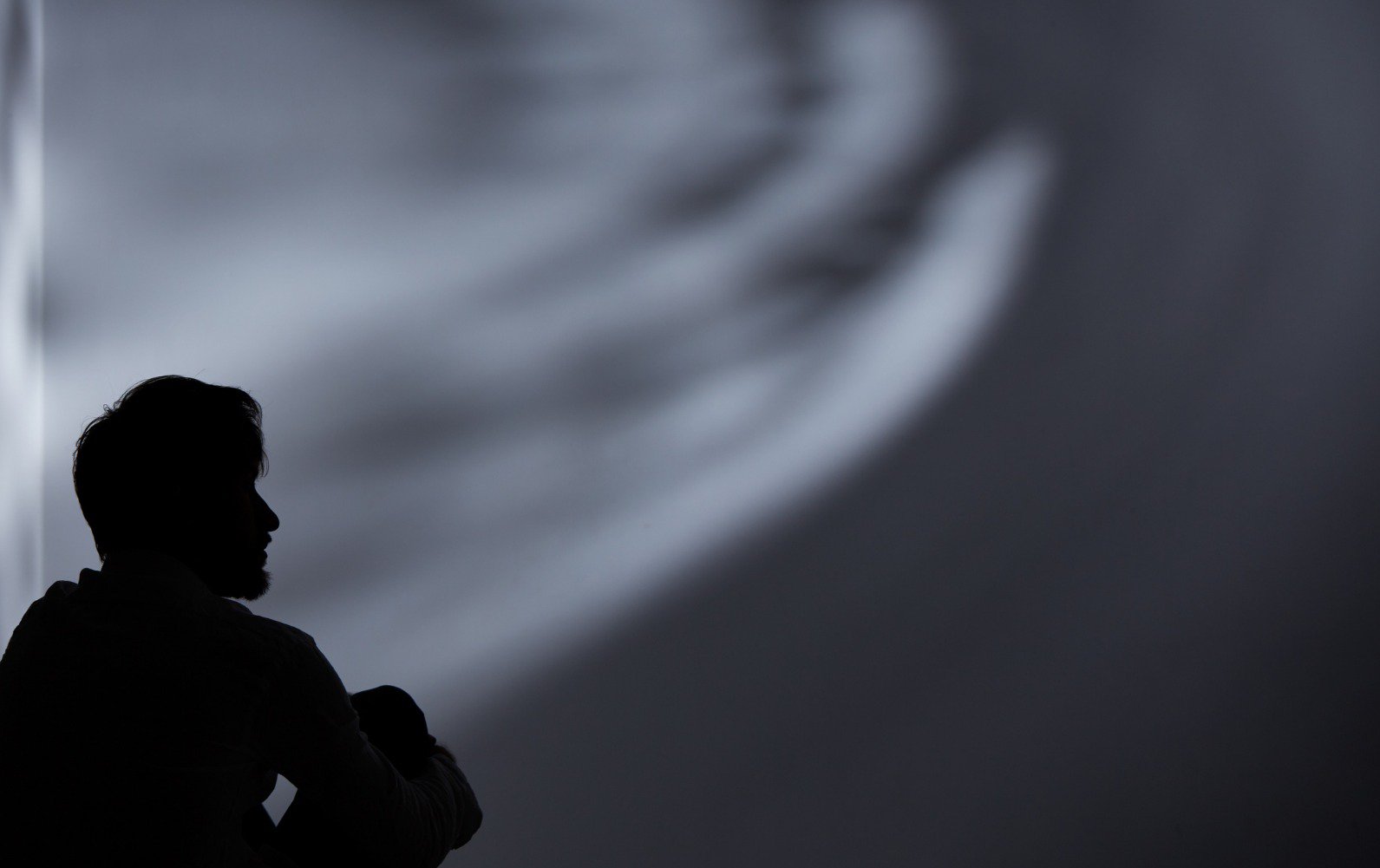God said to Moses, “Stretch out your hand toward the sky so that darkness spreads over Egypt—darkness that can be felt.” Moses stretched out his hand toward the sky, and total darkness covered all Egypt for three days. No one could see anyone else or move about for three days. Exodus, Chapter 10
“It’s these little things, they can pull you under.” “Sweetness Follows,” REM, 1992.
Somewhere around 1984 or 1985, I slowly realized that I had lost the desire to move. I cannot pin it down to a specific week, much less a day, just a growing feeling as I lay on the couch in my basement apartment, that getting up was a Herculean task, and moreso one that seemed pointless. To describe this in rational terms to one who has never experienced this drowning on dry land is at times to invite gentle ridicule (“of course there’s a point to getting up – don’t you have to go to work or school or shop?”) or sympathetic obtuseness (“we feel really bad for you but we have no idea what the hell is going on. Just try to get on with things,” as though it were just a matter of will).
Prozac was still at least three years off, and I was utterly clueless in any event about what kind of pharmacological treatment was available. The plague of darkness had settled on my small living room, and the fog would not lift for years.
How do you describe colour to someone who was born blind?
The same thing applies in trying to articulate what it feels like to be weighted down with depression, a feeling so tangible that you could cut it with a knife.
It is many years later, and I am not in the same emotional situation, for reasons far too lengthy to expound upon here. By many people’s estimation, I would seem to be a very productive and functioning member of society. But even now, in 2021, were I to describe the feeling I have when I wake up most days, it is as though I am being slightly pushed, all the time, by some invisible cultural hand. A small shove at my back, my shoulders, my self-esteem, that always feels as though it is thrusting me in the direction of self-justification. So what do you do then? Is it a sexy job which will garner material rewards and admiration? Are you on your way to being Zuckerberg, Bezos, Musk?
What do you look like? Your face. Your body. Are you stylish – in your clothing, your circle of friends, your performances on social media? Where have you visited? How much is in your bank account? Are you successful? Well known? Are you ambitious? Do people notice you when you walk in the room? Do you know the things that are supposedly important to be known, have you watched what is fashionable to be watched, have you connected with people with whom one should connect? Are you respectable? Do you matter? Or, are you just…ordinary?
The messaging is constant and it emerges out of every crack and fissure of society. What would happen, I wonder, if an alien spent one week on earth, especially in the West, and absorbed these messages and compared them with their own sense of being? If the alien felt like it was necessary to embrace these values in order to fit in, he or she would likely begin to display signs of mental illness within a week. It is almost impossible to be in the world today and not feel a sense of unwellness, sometimes an inchoate hurt, and sometimes a sharp pain in your soul.
As the English philosopher Alain De Botton asks, ‘What’s wrong with an ordinary life?” Today, he argues, part of our insanity lies in the judgments we make of others based on superficial or incomplete criteria. In yesteryear, a snob was someone who might assume an air of self-importance based on their aristocratic lineage or stylish ancestral estate. However today, says de Botton, we are all snobs, and what we are snobbish about is what you do for a living, and whether it has garnered impressive financial rewards. (In that sense, I guess you could say we are ‘job snobs’).
Now most mornings, I am able to turn around and mildly but firmly take that hand off of my shoulder and bid it go on its way. I am not interested in having to live up to some external standard, the fulfillment of which will always be a day away and a dollar short. In that direction, true madness lies. But the pressures upon everyone I know to seem as though they are making it, that they are just fine, are nefariously seductive.
These days, there is more relief available, and more awareness generally, about how central emotional buoyancy and resilience are to one’s life. But we are still hampered by various stereotypes about people involved in the struggle for mental health, that it is an aberration rather than something that most us experience in different ways, even if not everyone suffers debilitating illness. Whether it is a chemical imbalance or an existential sadness, depression is not someone’s fault, something they’re doing wrong” something they just need to ”tough out.”
Depression does not care about your CV, your stock portfolio, the number of followers on your Facebook page, your graduate degrees and professional honours. Most Jews think of Maimonides as the pinnacle of an iron clad rationality and one of the greatest thinkers in Jewish history. Not as many are familiar with the fact that he went through a period of utterly crippling depression, brought on by the death of his brother, as he frankly admits in one of his letters:
“The greatest misfortune that has befallen me during my entire life — worse than anything else — was the demise of the saint…who drowned in the Indian sea…On the day I received that terrible news I fell ill and remained in bed for about a year, suffering from fever and depression, and was almost given up. About eight years have passed, but I am still mourning and unable to accept consolation.”
What we all need is a helping hand. Don’t take my word for it, but listen in on the life of one of the great Talmudic rabbis. The Talmud says Rabbi Yohanan fell ill—undergoing some form of acute mental anguish–and was visited by his friend, Rabbi Ḥanina, who said to him: “Is your suffering dear to you?” Rabbi Yoḥanan said: “I welcome neither suffering nor its reward,” to which R. Ḥanina replied: “Give me your hand.” He gave him his hand, and Rabbi Ḥanina “stood him up” [restored him to health].
The Talmud then asks and answers, “Why did he wait for Rabbi Ḥanina to restore him to health? [Because] A prisoner cannot generally free himself from prison.”
This remarkable passage, from an age which supposedly had little insight regarding such matters, offers multiple pathways towards understanding mental distress. Rabbi Hanina’s challenging question, translated as “do you want to live this way? Do you have some perverse desire to feel bad?” is countered immediately by Rabbi Yohanan, who confesses that he has no desire to suffer but obviously cannot shake its grip. Rabbi Hanina does not offer any pearls of wisdom nor barbs of judgment. He just leans into an instinctively compassionate act – he takes Rabbi Yohanan’s hand.
But the truly edifying part of the whole story is in its conclusion. When the Talmud rhetorically asks why Rabbi Yohanan could not just “get up himself” (i.e. get on with it, get off the couch and go to work), it offers a stunning metaphor: “A prisoner cannot free himself from prison.” This piece of enduring wisdom should be our guide when we think about our family members, our friends and our neigbours who are running the gauntlet through stress, sadness, depression. We all need, every one of us, an empathic presence that announces “I am here for you and I will be here tomorrow and the next day.” And even that is not always nearly enough, and further help should be encouraged in the form of psychotherapy and meds. No one breaks out of prison themselves.
In the original plague of darkness, “people could not see one another, and for three days no one could get up from where he was” (Exodus 10:23). At the heart of the matter, this plague is really about our inability to see one another for whom we really are and what we really feel. And the pain we cannot see, or refuse to see, we will not try and alleviate. That is the darkness of Egypt, a pestilence running through our lives today in every corner of the planet. May we all find the grace and strength to see each other through these troubling times and look out for one another, so that, as day breaks, we can get up and start to live, one step at a time.


0 Comments